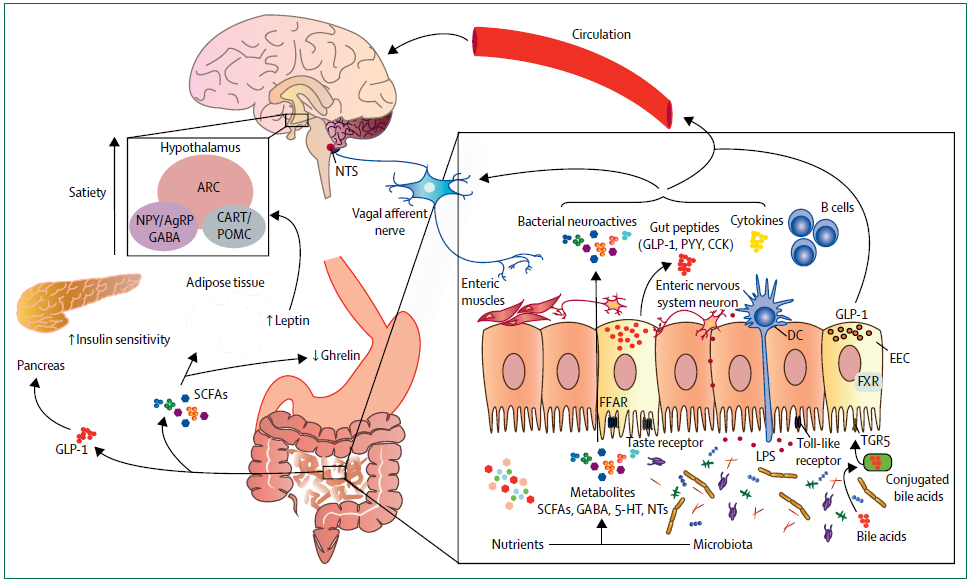Most of us know that there are lots of bacteria in the gastrointestinal tract. But what many do not know is that these bacteria weigh 1 to 2 kg and have about one hundred times more genes than one person! They are of great importance to our well-being, health and are proposed to reduce the risk of various diseases in the long term, including obesity.
A so-called “healthy microbiota” is crucial to our metabolism. Deviating composition of the intestinal microbiota, especially early in life, is suggested to contribute to increased risk of overweight, obesity and diabetes by affecting metabolism and the so-called central appetite mechanism. There are many factors that contribute to “unhealthy” microflora. Antibiotics given to young children are associated with higher risk of obesity later in life. How the child was born is also important. In children born through Caesarean section, its intestine microbiota comes from the mother’s skin and the environment rather than from the vaginal microflora. This is a mechanism suggested to contribute to higher risk of obesity, asthma and other allergies. Another important factor affecting our intestinal microbiota is the composition of the diet. The western world’s diet contains a lot of sugar and a little fiber which affects the bacterial composition of the intestine. Sweeteners have been shown to adversely affect the microflora of the stomach, stress can have this affect as well.
Actively affecting intestinal microflora is a potential way of combating obesity. Bariatric surgery that reduces the stomach volume has been shown to reverse the intestinal flora so that it resembles that of a person of normal weight. Both probiotics (good bacteria) and prebiotics (fibers that stimulate the growth of good bacteria) can help in obesity treatment but more studies are needed. A new promising therapeutic method is fecal transplantation. Fecal transplant or pills with freeze dried stools from healthy donors are suggested to help people who are overweight to lose weight. Studies that test the effectiveness of this method are underway.
Torres-Fuentes C, Schellekens H, Dinan TG, Cryan JF. Lancet Gastroeneterol Hepatol 2017;2;747-56.









